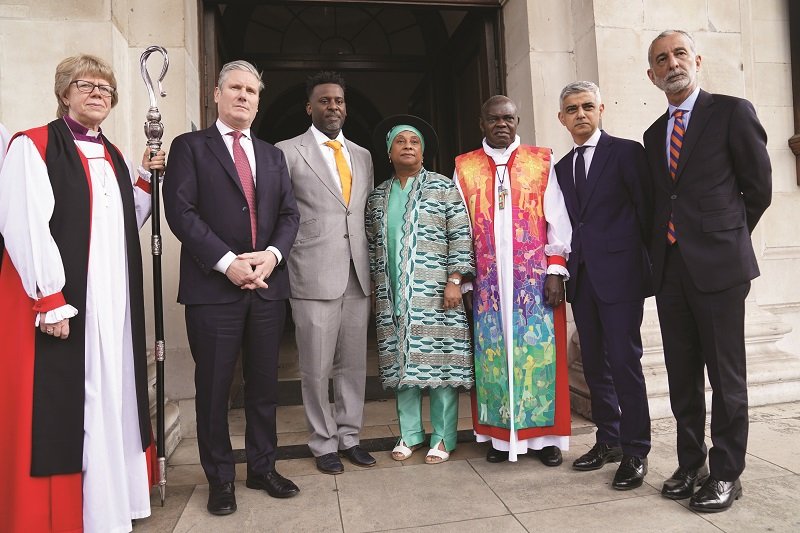‘Nothing has changed since Stephen’s murder’
April 22 marked 30 years since the murder of teenager Stephen Lawrence and his mother has said the Met has not changed since then, writes Claudia Lee.
Weeks after the Casey review into the Met found evidence of continuing systemic racism, Baroness Doreen Lawrence said she was “not surprised” by the findings.
She said: “I don’t know how many more inquiries and how many reviews you need to have to say the same thing, and still no changes, and still denials. Officers are able to be as brutal as they want, and nobody holds them to account.”
Stephen Lawrence was born and grew up in Eltham in Greenwich where he lived with his parents Neville and Doreen, his brother Stuart and sister Georgina.
He juggled an active social life, school work, family commitments, and part-time employment.
He also had ambitions to become an architect, an aspiration his father also once shared.
Tragically, his dreams of architecture were never realised.
On April 22, 1993, 18-year-old Stephen was murdered in a racist attack at a bus stop in Well Hall Road, Eltham.
The way the police struggled to handle the investigation into Stephen’s death resulted in the watershed Macpherson Report in 1999.

The report, which heard evidence from 88 witnesses and considered 100,000 pages of statements and documents, officially found there had been “institutional racism” in the Met.
The inquiry made 70 recommendations aimed at improving police attitudes to racism and also paved the way for a change in the law.
Twenty-four years on, Baroness Louise Casey’s recent report once again found the force to be an institutionally racist organisation, as well as homophobic and misogynistic.
Baroness Lawrence said she does not believe she will ever see full justice for her son’s murder.
She said: “Within the black community, how we’re treated, how crime’s investigated, we’re never seen as a group of people that should have justice.
“So everything that we’ve had, we’ve had to fight for, and continue to fight.”
A day after Stephen was murdered, a letter with the names of the suspects was left in a telephone box.
Two of his five suspected killers were jailed for murder nearly 20 years later.
After Stephen’s death, police started to investigate suspects who they believed were responsible for the attack.

But Stephen Lawrence’s family felt that not enough was being done to capture Stephen’s killers.
Nelson Mandela met with his family and called on the police to do more.
Although some suspects were charged with Stephen’s murder, these charges were dropped before a trial could happen.
As a result of the Macpherson Report, suspects acquitted of serious crimes could be prosecuted again if new and compelling evidence emerged.
This legal reform was resisted by some lawyers and judges but enabled one of the men suspected of Stephen’s murder, Gary Dobson, to be put on trial for a second time.
In 2012, he was convicted, along with David Norris.
In August 2020, the Met declared the investigation into Stephen’s death inactive.
They said all identified lines of inquiry had been completed.
No one else would be taken to trial and held responsible for Stephen’s death unless the case was later reopened.
Despite the 2012 convictions of David Norris and Gary Dobson, there are other suspects who are still free.
To mark the 30-year anniversary of Stephen’s death, his family and friends gathered for a memorial at St Martin-in-the-Fields church in Trafalgar Square.
The Mayor of London, Sadiq Khan and leader of the Labour Party, Keir Starmer, attended the memorial.
Mr Starmer gave a short speech and read a poem by Maya Angelou at the request of Stephen’s mother.
Baroness Lawrence has said that as long as the police continue to deny they did anything wrong, there will be no change.
She said: “The reality is that they didn’t do everything that they could, they allowed the perpetrators to go free.”
The date of Stephen’s death is now marked by Stephen Lawrence Day each year.
It was created by the Stephen Lawrence Foundation as a celebration of his life and legacy, existing to inspire a more equal, inclusive society.
Picture: Stephen Lawrence Picture: PA
